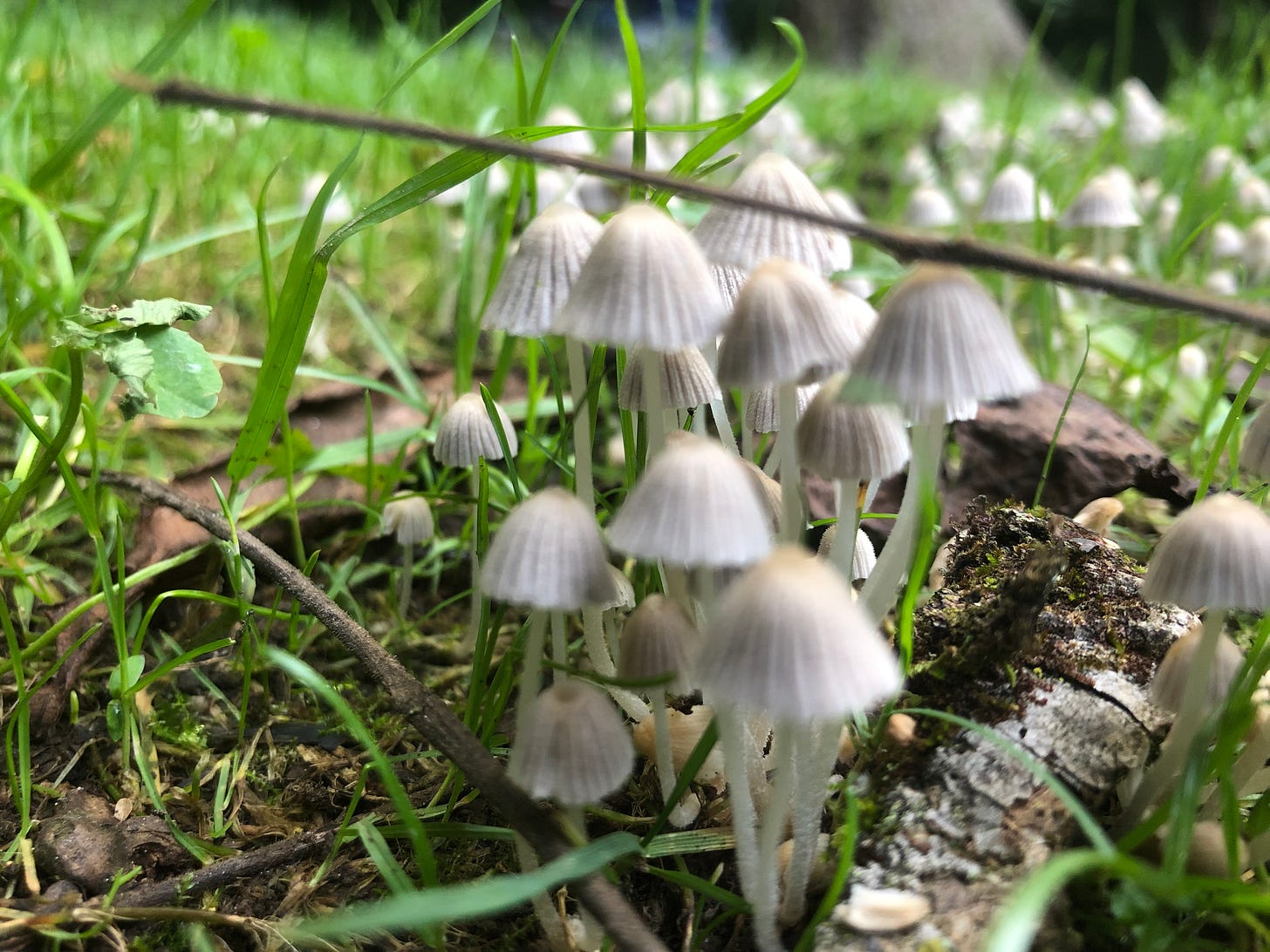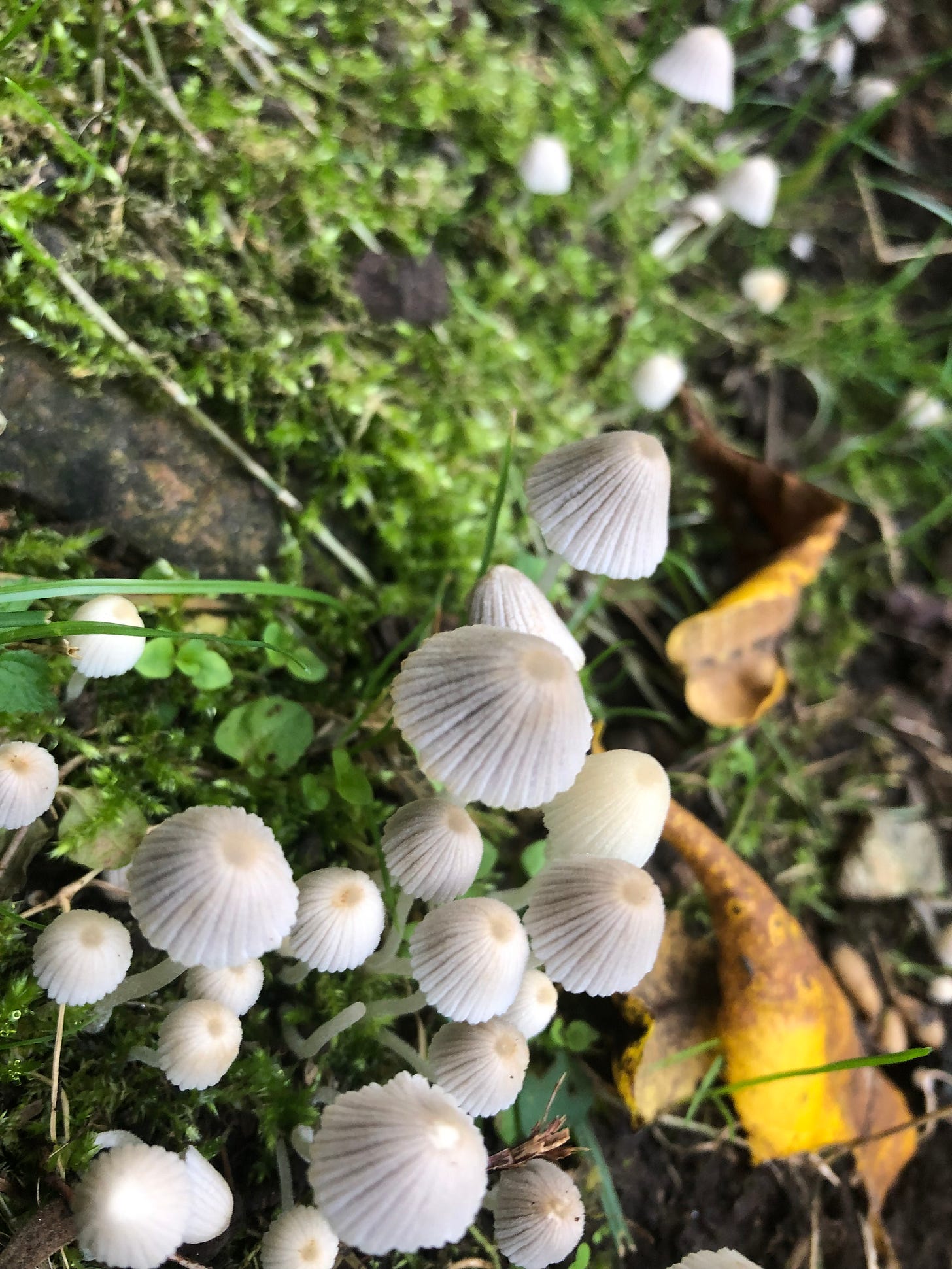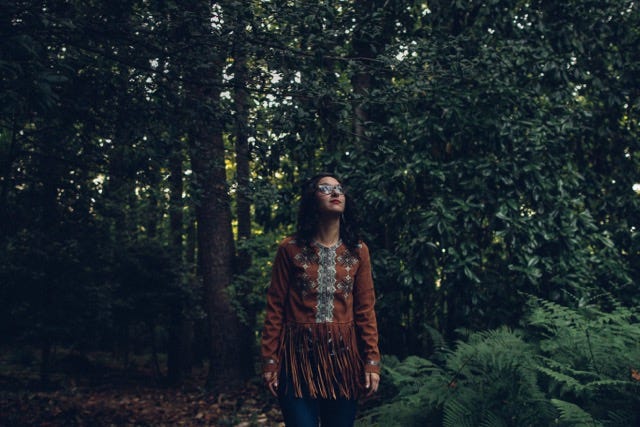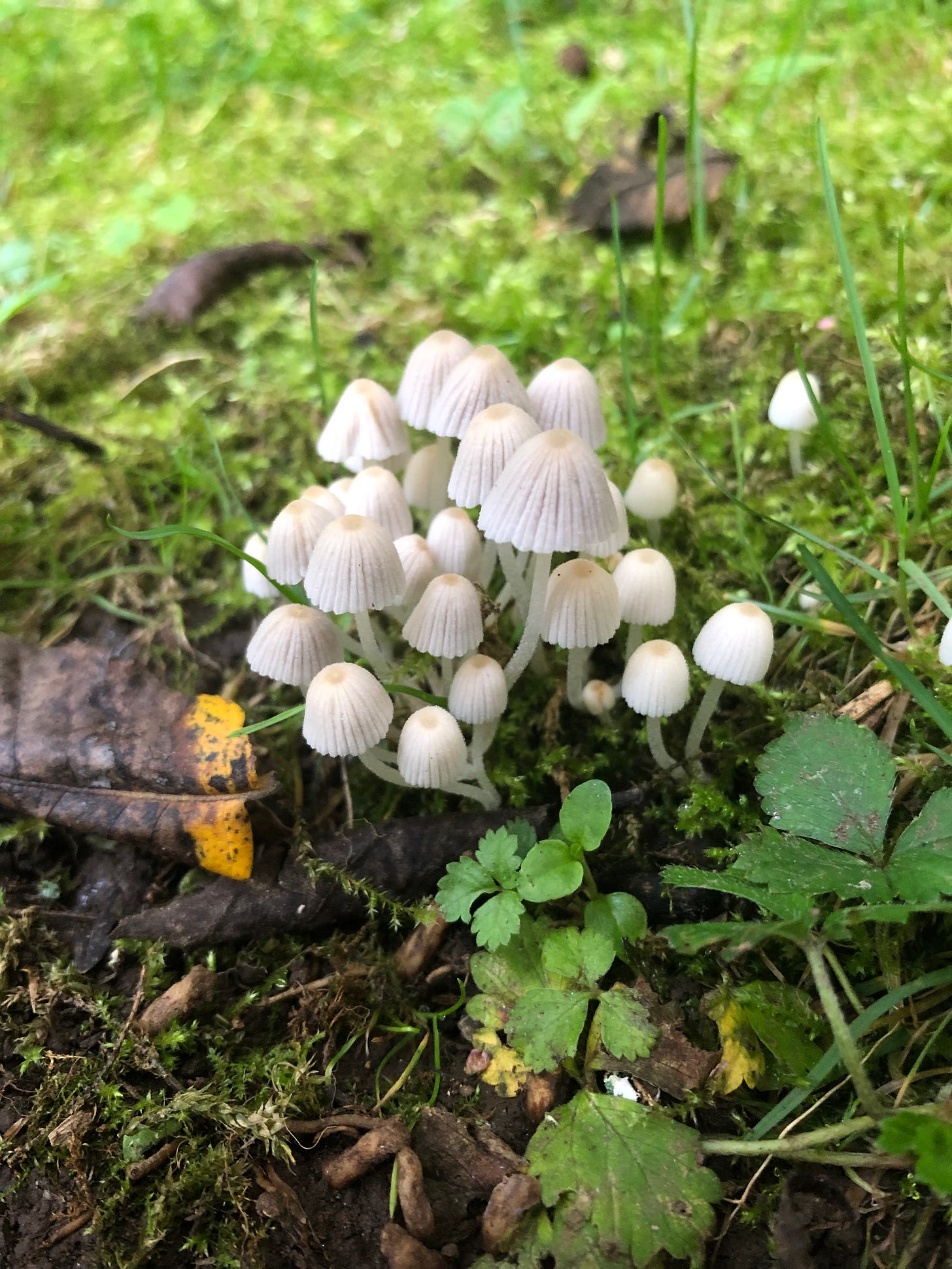Why This, Why Now?
a return to simple stories
When my first child was born in 2011, I started a blog because I needed a space to reflect and process the changes happening around and inside me. I journaled anytime I had the space, as I’ve done since I was young. Only this time, this new baby, this new season of wondering and asking different, sometimes harder questions, was requiring a bit more of me, and I wanted to meet it.
On Thursday and Saturday mornings, my partner Travis would head out early to the coffee shop where he worked, opening for the day. I’d show up a few hours later with our little one in tow, slide into a booth with his carrier next to me, a book and journal in hand.
That’s all I needed back then, one book at a time, one journal entry at a time. I’d order a vanilla latte, sip it slowly, and enter into the world of Thomas Merton and others like him, those pressing against the status quo of society and teaching me, somehow, to do the same.
I called my blog Stories, because that’s how I navigate being human, how we all navigate this, really. Our stories are our tools, our identities, our ways of being.
In 2017, my first book was published, and after that my life as a writer became something different. I didn’t fill up those journals in the same way; the laptop always came with me to the coffee shops, a different sense of urgency and expectation hanging in the air.
I started The Liminality Journal to return to some of those first encounters with writing, with words and feelings and experiences, with thisness.
It is, in a way, returning back to the basics, the basics of who I am as a writer. This is a space to celebrate that simplicity. That’s why I’m also sharing notes from my own journals with you, original poetry, and these essays about what it means to be human.
At the same time though, liminality isn’t simple, is it? It’s not necessarily simple to realize that humans are layered, nuanced beings, capable of a better relationship to the earth, the creatures of the earth, and each other. It’s not always simple to understand why we do what we do.
But.
Listening to the story of another, engaging with those stories, embracing those sometimes confusing, often misunderstood spaces inside ourselves and each another--there is, somehow, a simplicity to that. It starts with the words, the story, the pen and paper, the quiet.
It starts here.
So tell me, what does story mean to you?
Why are you here?
Friends, don’t forget, most of my writing will remain free, because I believe that sharing my words with all of you is what creates this community. For free subscribers, you’ll still get access to my essays and some original poetry.
But if you’d like to subscribe for a paid account, you’ll get access to the following:
a look into my life as an essayist and poet
participate in discussion threads with me
glimpses into notes from my personal journals
If you’re interested, just click the “subscribe now” button below.
Onward, friends, together.






I like telling my own real life stories, buffed more humbling or embarrassing to me the better and my wife always asks why I tell such personal embarassing tales on myself and I really did not know why until I read Anne Jackson's "permission to speak freely" where she talks about "the gift of going second" where she would purposely start an uncomfortable conversation with a stark maybe embarrasing story about herself, gifting others with peace and confidence and humility and courage to "go second"., kind of an icebreaker, I guess. Or maybe I just like to shock people. Whatever.
I have always loved stories. I loved to read and, as I grew up, I realized some of the best stories weren't just in books, but people had stories. Taking time to learn another's story is how I connect with them and see them as layered, multidimensional human beings. Whenever there is a big topic that I don't quite understand, I look to people who live in that space to tell me their story and help me gain insight. I can do that by following them on social media, listening to podcasts, supporting them, reading their books if they have any published, etc.